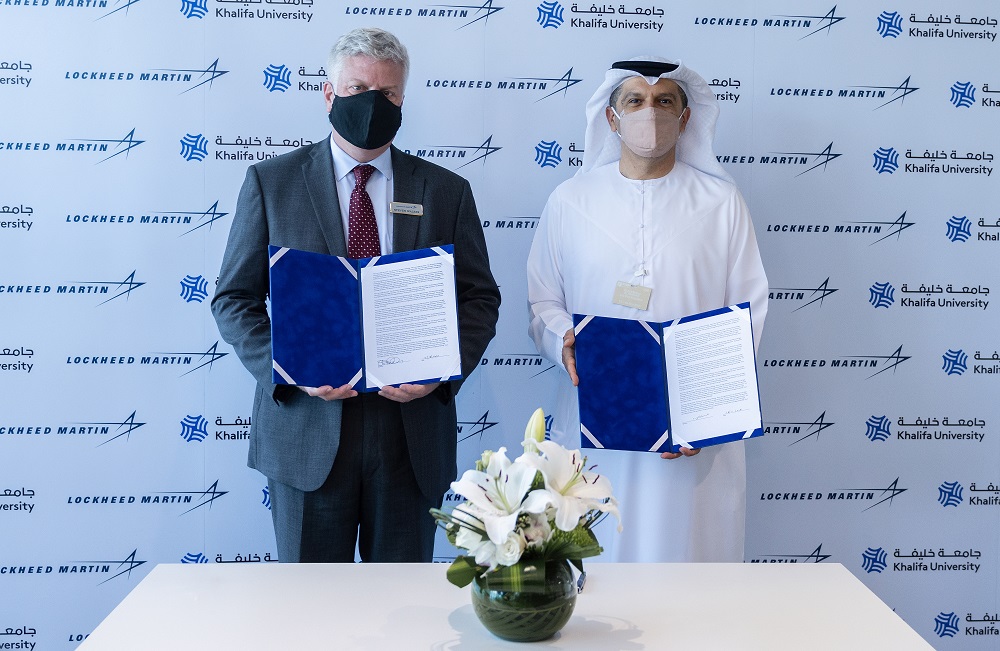
Dr. Georg Petroianu discusses issues of early diagnosis, longevity, and continuous monitoring in the following keynote address delivered at the Healthcare Engineering and Innovation Group’s 1st International Workshop on 25 November 2019.
I was asked to talk about the future of healthcare in the 21st century to open the 1st International Workshop at the Khalifa University Healthcare Engineering Innovation Group and was asked to try and answer the question: “Where are we going?”
I decided to first try and come up with a brief history of medicine, and then figure out from there exactly where we are going.
The long story of medicine starts with shamans burning some plants and mushrooms and trying to influence the psyche. Then we make a huge jump ahead in surgery due to the various wars which were the perfect opportunity to practice all sorts of surgical techniques. Then we saw the introduction of modern anesthesia in the 1800s, followed by the discovery of bacteria and antibiotics, and most recently, DNA and the promise of personalized medicine.
So where are we going now that we know where we are coming from?
Extrapolating our next steps from here is a difficult science. There are many problems associated with extrapolation; it’s a very dangerous science and it’s not really helpful or useful in making predictions (or educated guesses) as to what is the next big thing. Just to alleviate the pain of this inability, I’ll remind you of the famous sayings from Alice in Wonderland, where “if you don’t know where you’re going, any road will take you there,” or the other one, “if you don’t know where you’re going, you might wind up someplace else.”
The only reliable method of predicting the future is my crystal ball. The disclaimer here is that the contents of this opinion come only from my crystal ball and do not represent the opinions of the rest of Khalifa University or the school of medicine. To take from The Wizard of Oz, this is the yellow brick road. Let’s follow it and ask, “where are we going?”
This is pretty easy to answer, unless overnight the fountain of youth was discovered—which I rather doubt—the destination is pretty clear. Life is the only experiment with a 100 percent predictable outcome: we are all going to die. The question is not so much “where are we going,” and not even “how long is it going to take to get there?” If you live in an affluent country, the mean life expectancy is somewhere between 75 and 85 years, depending on your gender and other minor factors. We cannot change the destination, so let’s ask instead: “Can we extend the journey?”
Yes, we can.
We can prolong our journey. Let me start with a number of platitudes which you’ll be familiar with on how to extend the journey and then we’ll get into the more specialized approaches. Of course, you know that if you drink water, that’s better than drinking carbonated, sugary sodas. You know that an apple is probably better than a hamburger, and that if you don’t smoke, that’s much better. You know that if you’re not obese, that’s better, and you know that if you practice some sort of sport—even yoga—it helps.
What you also intuitively know—maybe you don’t admit—is that living in a solid, harmonious relationship extends your life. Married people live a tad longer than singles, contingent on the assumption that the relationship is stable and happy. I have to disappoint here: adding to the number of husbands or wives doesn’t provide an additive advantage. You will not live four times longer if you have four consecutive or parallel marriages. One is probably enough if you’re just looking for that longevity boost.
For those of you who are quite skeptical about marriage, you could also live longer if you have a pet. One study suggests you could live up to 24 percent longer—a number I very much doubt but it adds to your life expectancy if you have a pet and apparently, dogs are better than cats, parrots, and other reptiles.
Getting back to my actual area of expertise, can you take pharmacology drugs to extend your life? The surprising answer to that is a clear yes.
I would like to introduce you to one of the most fascinating publications in the last ten years, at least for me, and it comes from the University of Cardiff. It’s a pretty bland study but the results were absolutely amazing: British researchers reviewed the records of 90,000 diabetic patients, with one half taking metformin (a plain vanilla WHO listed essential medication to lower blood sugar), and the other half taking a sulfonylurea (a blood sugar lowering agent). These were compared with a control group of 90,000 subjects without diabetes who were therefore not taking any metformin or sulfonylurea.
The results showed that if you had diabetes and you were taking metformin, you lived longer than if you had diabetes and you were taking sulfonylurea—this is nothing new or exciting and certainly, nothing to write home about. The observed survival time was 38 percent longer in patients taking metformin compared to patients taking sulfonylurea which was consistent with clinical experience.
The real surprise was that diabetic patients taking metformin lived longer than the matched control subjects who were not diabetic and not taking any drug. So, taking metformin would make you live longer despite your diabetes as compared with healthy people. Is metformin the fountain of youth in the form of a tablet?
How does metformin contribute to longevity? In addition to impairing sugar production in the liver (impairing gluconeogenesis) as a therapy for diabetes, it also has a mild indirect inhibitory effect on TSE12 which then inhibits an enzyme called mTOR, the mammalian target of rapamycin. In blocking mTOR, which regulates cell growth, protein synthesis and cell proliferation, it controls cell multiplication. For a cell to reproduce, it needs an active mTOR; taking metformin means the cells reproduce less and the likelihood of mistakes in DNA replication is reduced, so the likelihood of developing cancer is reduced.
Doctors in the United States are already prescribing anti-aging cocktails including metformin. The answer is yes; we can pharmacologically prolong your life.
It’s not all about living longer; it’s also about enjoying living longer. It matters how you live longer. We want to live longer, but we want to live longer under certain conditions and in order to maintain quality of life and guarantee longer life expectancy, the point in time a diagnosis is made is essential. Normally, people develop symptoms, find a doctor, and after the examination, a diagnosis is made and treatment initiated.
All our efforts in the last 20 or so years, with help from biomedical engineering and other disciplines, was to bring that point in time where a diagnosis is made as far to the beginning of the disease is possible. Early diagnosis is the key to longevity but all our super, fabulous, fancy diagnostic methods still are not sufficient: we want the diagnosis to be made long before any symptoms arise.
The earlier the diagnosis, the higher the likelihood of preserving quality of life and extending life expectancy. We can do this via artificial intelligence and continuous monitoring of disease markers by implanted technology, wearable sensors, and smart tattoos. That’s where we’re going. How do I know? Because the car insurance business is already doing this and showing us the right direction.
In the past, your car insurance rate depended on a number of factors, including your gender and your previous motoring history. Now, companies can monitor your driving style continuously as the Internet of Things transforms the automotive insurance industry. Imagine a system of things in your vehicle that is able to report on every detail from speed to fuel volume, tire pressure and so on. Age, gender, and all the traditional factors used to determine the cost of your insurance are just proxy to the information that can be generated from telematics. It can capture driving behaviors such as sharp turning, hard braking or traffic violations, and your insurance price can be derived from all this data.
Health insurance is going this way too. Targeting or pricing the insurance based on continuous monitoring of your health parameters. Essentially, it’s a bit Orwellian, because they have the ability to know when your lipids go up (because you’re not sticking to your diet), when your blood oxygen saturation levels go down (because you had a sneaky cigarette) and many other things. Continuous monitoring is built into the cost of health insurance.
Another aspect is compliance.
It is estimated that billions of dollars are lost annually because patients do not take their medications as prescribed. Now, we have smart pills, which, when ingested and reach the acidic environment of the stomach, send an electric signal which is registered by a sensor. A tracking program can confirm you swallowed a tablet. Tablets can have different signals to differentiate each one between the six to ten medications the average American takes every day. Your phone can pick these up and track your compliance to your medication.
Your breath can also give you away. It contains much more than CO2, such as all the substances that provide a wealth of information about your health. By having microsensors in your nose or mouth, your metabolism can be measured. Google is working on smart contact lenses able to measure the sugar in your lacrimal fluid and therefore your compliance with your diet. Heart rate and ECG are very easy to monitor continuously, your C-reactive protein interlink can be assessed to check for inflammation, and many other things, all with the intention of reducing costs.
So where are we going? The future is one where medicine ceases to be an art and becomes more and more scientific. Artificial intelligence beats humans not only at chess but also at diagnosing a multitude of diseases. Thanks to collaboration with physics, mathematics, engineering, material sciences and chemistry, microsensors will be available all over our skin and in our body—on everything—to record a constant flow of information. We will be as transparent as possible.
Continuous monitoring is the future. Not only is it the most economically effective way of prolonging life, it’s also the most effective way of bringing diagnosis forward to the point of intercepting a disease before any symptoms can raise their heads.
That’s what my crystal ball says, anyway.
Dr. Georg Petroianu, Associate Dean of Research, College of Medicine and Health Sciences, Khalifa University






